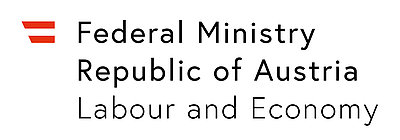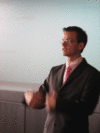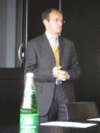EVENTS
 FIW Conferences.
FIW Conferences. FIW Workshops .
FIW Workshops . 33th FIW-Workshop on Regional Economics.
33th FIW-Workshop on Regional Economics. 32th FIW-Workshop 'Gravity at Sixty'.
32th FIW-Workshop 'Gravity at Sixty'. 31st FIW-Workshop 'Firms and Workers in the Global Economy'.
31st FIW-Workshop 'Firms and Workers in the Global Economy'. 30th FIW Workshop "W.I.E.N".
30th FIW Workshop "W.I.E.N". 29. FIW Workshop "Women in International Economics".
29. FIW Workshop "Women in International Economics". 28th FIW Workshop on International Economic Networks.
28th FIW Workshop on International Economic Networks. 27th FIW Workshop on International Economic Networks.
27th FIW Workshop on International Economic Networks. 26th FIW Workshop on International Economic Networks.
26th FIW Workshop on International Economic Networks. 22. FIW Workshop "International Trade 200 years after Ricardo".
22. FIW Workshop "International Trade 200 years after Ricardo". 21. FIW Workshop "From Tariffs to Standards. Assessing the role of Non-Tariff Measures".
21. FIW Workshop "From Tariffs to Standards. Assessing the role of Non-Tariff Measures". 20. International Economics.
20. International Economics. 19. Trade, Migration and Labor Market Outcomes.
19. Trade, Migration and Labor Market Outcomes. 18. Political Economy of Trade Poliy.
18. Political Economy of Trade Poliy. 17. Lessons from the Financial Crisis.
17. Lessons from the Financial Crisis. 16. An Industrial Renaissance in Europe.
16. An Industrial Renaissance in Europe. 15. Trade & Productivity.
15. Trade & Productivity. 14. Rebalancing the Global Economy.
14. Rebalancing the Global Economy. 13. Global Trade and Growth.
13. Global Trade and Growth. 12. Research Agenda.
12. Research Agenda. 11. FIW-Research Reports.
11. FIW-Research Reports. 10. New Protectionism.
10. New Protectionism. 9. Access to Microdata.
9. Access to Microdata. 8. New New Trade Theory.
8. New New Trade Theory. 7. FDI II.
7. FDI II. 6. Services.
6. Services. 5. Research Agenda.
5. Research Agenda. 4. FDI.
4. FDI. 3. Migration.
3. Migration. 2. Trade Agreements.
2. Trade Agreements. 1. EU-Enlargment.
1. EU-Enlargment.
 FIW Seminars.
FIW Seminars. FIW Lectures.
FIW Lectures. External Events.
External Events.

The FIW - Research Centre International Economics (https://www.fiw.ac.at/) is a cooperation between the Vienna University of Economics and Business (WU), the University Vienna, the Johannes Kepler University Linz, the University of Innsbruck, WIFO, wiiw and WSR. FIW is supported by the Austrian Federal Ministries of Education, Research and Science (BMBFW) and of Labour and Economy (BMAW).
FIW Newsletter
Stay informed and subscribe to the FIW-Newsletter.
The multilateral trade negotiations have been revived after the recent backlash following the suspension of the Doha Development agenda in the June/July 2006 modalities meetings in Geneva. However, despite intense efforts to conclude the round within the current year, a tension can be felt between the multilateral trade negotiations and bilateral negotiations of various important WTO members. In the past, the European Union has been one of the most committed advocates of multilateralism. However, recently the EU has adapted its long-term strategy towards discussion and negotiation of bilateral agreements. With this shift towards bilateralism, the EU attempts to avoid the possibility of being left-out from a newly forming global “spaghetti-bowl” of bilateral trade negotiations while it risks the accusation of hampering the successful conclusion of the round.
The workshop will provide information about the main economic and political consequences of the two scenarios: a multilateral outcome versus bilateral agreements from both, an applied and a theoretical point of view. It will further highlight in a panel discussion the dilemma the EU faces currently and identify the available options and strategies to be pursued in order to achieve a beneficial outcome for Europe but also in global terms.
Program
8:30 am : Registration and Coffee
8:45 am: Welcoming Speech (Manfred Schekulin) and Introduction Julia Wörz
9:00 - 10:30 am: Presentations
Mario Larch (IFO München): "On the Welfare Effects of bilateral versus Mulitlateral Trade and Investment Liberalization" The presentation can be downloaded here.
Joseph Francois (Johannes Kepler Universität Linz und CEPR): "Impact of Bilateral Trade Agreements versus the effect of the Doha Round on the EU" The presentation can be downloaded here.
10:30 - 10:45 am: Coffee Break
10:45 - 11:45 am: Presentation and discussion of the presentations
Maurizio Zanardi (CentER, Tilburg University): “Antidumping - Past, Present, Future” The presentation can be downloaded here.
11:45 am - 12:00 pm: Coffee Break
12: 00 - 13:30 pm: Panel Discussion
Josef Mayer (BMWA)
Paolo Garzotti (DG Trade)
Susanne Schrott (WKO)
Joseph Francois (JKU Linz)
Moderation: Michael Landesmann (wiiw)
13:30 - 14:00 pm: Informal Talks, Networking (Brötchenbuffet)
Moderation: Julia Wörz (wiiw)
The Workshop will be held in englisch.

Printable version of the program
as a pdf-File










